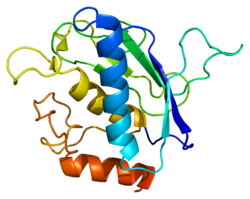Lau et al. Sulfate proteoglycans in demyelinated lesions impair remyelination. Ann Neurol. 2012 Sep;72(3):419-32. doi: 10.1002/ana.23599
OBJECTIVE: Failure of remyelination is a critical impediment to recovery in multiple sclerosis (MS). Chondroitin sulfate proteoglycans (CSPGs) have been reported to accumulate in MS lesions, and we thus examined the functional roles of CSPGs on oligodendrocyte precursor cells (OPCs), oligodendrocytes, and remyelination.
METHODS: We evaluated the expression of CSPGs in lysolecithin-injected mouse spinal cord, an animal model of demyelination and spontaneous remyelination. The functional impact of CSPGs on OPCs and remyelination was investigated using cultured adult murine and human OPCs and by treating demyelinated mice with xyloside to reduce the CSPG deposition that occurred following injury.
RESULTS: Early and robust upregulation of CSPGs following lysolecithin-induced demyelination was cleared during remyelination. In culture, CSPGs anchored onto the substratum reduced the adhesion of mouse and human OPCs and their subsequent morphological differentiation into process-bearing oligodendrocytes. Soluble CSPGs added to already adherent OPCs reduced the development of processes, whereas the acquisition of mature myelin proteins was unimpeded. Stripe assays of alternating CSPG and control substrata confirmed the nonpermissive nature of CSPGs for OPC adhesion and morphological differentiation. Enzymatic degradation of CSPGs with chondroitinase ABC was sufficient to overcome CSPG-dependent inhibition of human oligodendrocytes. Finally, in vivo xyloside treatment to reduce CSPG synthesis in lysolecithin-demyelinated mice increased numbers of OPCs and oligodendrocytes in lesions, and culminated in improved remyelination.
INTERPRETATION: These results identify CSPGs as a nonpermissive substrate for OPCs and oligodendrocytes, and as a prominent impediment to remyelination. The data suggest the requirement for the neutralization of CSPGs for repair after demyelination
Chondroitin sulfate proteoglycans (CSPGs) are proteoglycans consisting of a protein core and a chondroitin sulfate side chain. They are known to be structural components of a variety of human tissues, including cartilage, and also play key roles in neural development and glial scar formation. They are known to be involved in certain cell processes, such as cell adhesion, cell growth, receptor binding, cell migration, and interaction with otherextracellular matrix constituents.They are also known to interact with laminin, fibronectin, tenascin, and collagen.CSPGs are generally secreted from cells. Importantly, CSPGs are known to inhibit axon regeneration after spinal cord injury. CSPGs contribute to glial scar formation post injury, acting as a barrier against new axons growing into the injury site. CSPGs play a crucial role in why spinal cord injuries are so debilitating and often incurable. This is deposits in lesions and it prevents regeneration. This study indicates that we need to deal with this issue so what we can get repair
